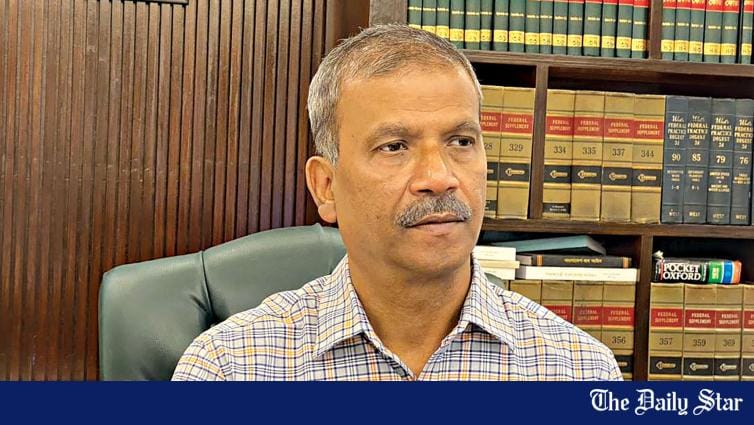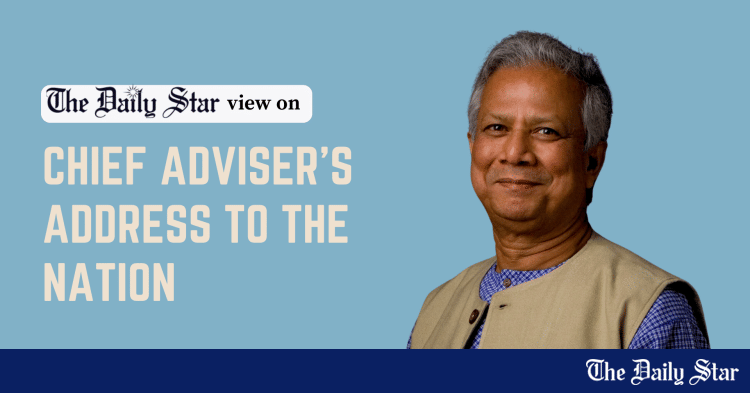Saif
Senior Operative
- 13,277
- 7,271
- Origin

- Axis Group

- Copy to clipboard
- Thread starter
- #25

Pruning unnecessary projects a pragmatic step
The decision by the interim government to list unessential and politically motivated projects for axing is a commendable and timely step. By streamlining development priorities, the interim government aims to avoid the wastage of public funds and ensure that resources are allocated efficiently. Giv
Pruning unnecessary projects a pragmatic step
Published :
Aug 25, 2024 22:45
Updated :
Aug 25, 2024 22:45

The decision by the interim government to list unessential and politically motivated projects for axing is a commendable and timely step. By streamlining development priorities, the interim government aims to avoid the wastage of public funds and ensure that resources are allocated efficiently. Given the prevailing economic challenges, a careful recalibration and a realignment of development projects are crucial to ensuring effective allocation of limited resources for the most pressing needs of the nation.
Many projects undertaken by the previous Awami League regime not only served the party's political agenda but were also plagued by irregularities and cost overruns, leading to significant wastage of taxpayers' money. Completed projects often end up costing several times more than the originally anticipated due to corruption and lack of proper oversight. Unfortunately, it had become a common practice to allocate substantial funds for ministers and MPs for development projects in their constituencies, often timed to coincide with national elections. This politically motivated approach frequently resulted in incomplete projects by election time; when promises used to be made to complete them if the party secured a victory. The rush to implement such projects also raised questions about project implementation capacity and integrity. There were often complaints of wasted funds due to corruption, faulty design and delayed project execution.
The interim government inherited a legacy of inefficient and potentially wasteful infrastructure development projects, many of which are in various stages of implementation. This inherited burden presented a significant challenge before the new administration. Amid the lingering economic slowdown, it is crucial for the government to focus on projects that have a direct impact on the lives of citizens and the overall well-being of the nation. Additionally, the focus should shift towards increasing employment opportunities rather than solely prioritising GDP growth. Rising inflation has left the average person increasingly frustrated, as the cost of living continues to soar. In this situation, employment generation, infrastructure that supports long-term economic growth, and social welfare projects should get priority.
While the previous government focused heavily on infrastructure development, it often neglected the more important sectors such as education and health. These two sectors are fundamental for human capital development. As a result of chronic insufficient investment in quality education, primary healthcare, and skill development, the country is facing an acute human capital crisis. For example, Bangladesh needs to hire foreign engineers and technical experts for the construction of mega projects like the Padma Bridge and Metro Rail. However, no decisive action was taken to develop the technical expertise within the country who could undertake such projects in the future. The lack of skilled manpower is also evident in the fact that, while a large number of educated youths are not finding jobs, many local businesses are hiring foreign nationals who take home about six billion dollars annually, equivalent to a quarter of the country's expatriate income. It is imperative, therefore, for the government to review its priorities and set allocation accordingly to enrich the country's pool of skilled manpower. Advanced economies worldwide are known and respected for their optimal investment in human resource development. They understand that a skilled and educated population is the cornerstone of sustained economic growth. If Bangladesh truly wants to graduate to a proper middle-income economy, there is no alternative to developing human capital.
Published :
Aug 25, 2024 22:45
Updated :
Aug 25, 2024 22:45
The decision by the interim government to list unessential and politically motivated projects for axing is a commendable and timely step. By streamlining development priorities, the interim government aims to avoid the wastage of public funds and ensure that resources are allocated efficiently. Given the prevailing economic challenges, a careful recalibration and a realignment of development projects are crucial to ensuring effective allocation of limited resources for the most pressing needs of the nation.
Many projects undertaken by the previous Awami League regime not only served the party's political agenda but were also plagued by irregularities and cost overruns, leading to significant wastage of taxpayers' money. Completed projects often end up costing several times more than the originally anticipated due to corruption and lack of proper oversight. Unfortunately, it had become a common practice to allocate substantial funds for ministers and MPs for development projects in their constituencies, often timed to coincide with national elections. This politically motivated approach frequently resulted in incomplete projects by election time; when promises used to be made to complete them if the party secured a victory. The rush to implement such projects also raised questions about project implementation capacity and integrity. There were often complaints of wasted funds due to corruption, faulty design and delayed project execution.
The interim government inherited a legacy of inefficient and potentially wasteful infrastructure development projects, many of which are in various stages of implementation. This inherited burden presented a significant challenge before the new administration. Amid the lingering economic slowdown, it is crucial for the government to focus on projects that have a direct impact on the lives of citizens and the overall well-being of the nation. Additionally, the focus should shift towards increasing employment opportunities rather than solely prioritising GDP growth. Rising inflation has left the average person increasingly frustrated, as the cost of living continues to soar. In this situation, employment generation, infrastructure that supports long-term economic growth, and social welfare projects should get priority.
While the previous government focused heavily on infrastructure development, it often neglected the more important sectors such as education and health. These two sectors are fundamental for human capital development. As a result of chronic insufficient investment in quality education, primary healthcare, and skill development, the country is facing an acute human capital crisis. For example, Bangladesh needs to hire foreign engineers and technical experts for the construction of mega projects like the Padma Bridge and Metro Rail. However, no decisive action was taken to develop the technical expertise within the country who could undertake such projects in the future. The lack of skilled manpower is also evident in the fact that, while a large number of educated youths are not finding jobs, many local businesses are hiring foreign nationals who take home about six billion dollars annually, equivalent to a quarter of the country's expatriate income. It is imperative, therefore, for the government to review its priorities and set allocation accordingly to enrich the country's pool of skilled manpower. Advanced economies worldwide are known and respected for their optimal investment in human resource development. They understand that a skilled and educated population is the cornerstone of sustained economic growth. If Bangladesh truly wants to graduate to a proper middle-income economy, there is no alternative to developing human capital.









